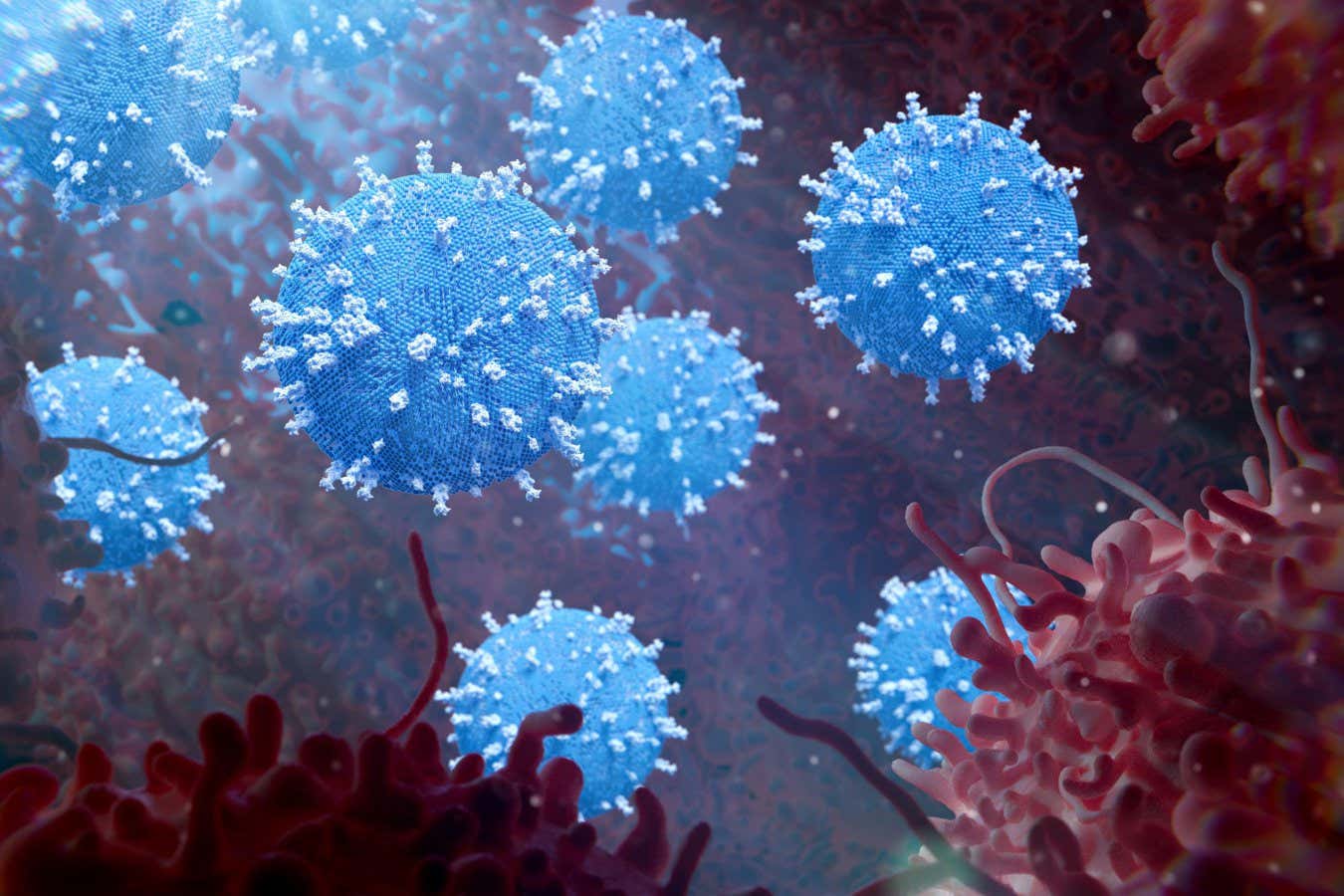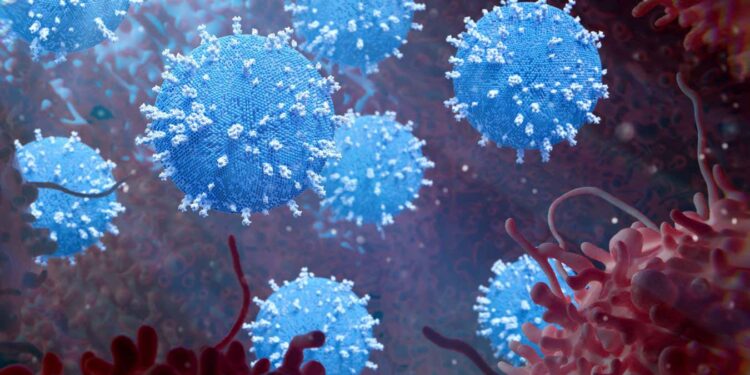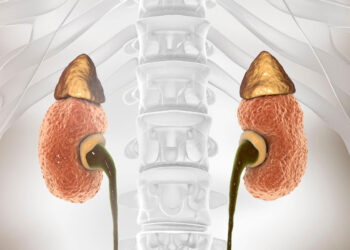
The herpes virus can help treat severe skin cancer
Science Photo Library/Alamy
Viruses have shown huge potential in treating various kinds of cancer, but the immune response has limited their application to tumours near the body’s surface. Now, scientists have demonstrated that shielding viruses with genetically engineered bacteria bypasses this issue, slowing the growth of severe tumours in mice.
A few therapies that use cancer-killing, or oncolytic, viruses have been approved worldwide to treat cancers of the skin, brain and head and neck. These involve injecting the genetically engineered viruses directly into tumours, where they infect and kill cancer cells by bursting them apart.
But for harder-to-reach tumours deeper within the body, such viruses must be injected into the blood, where the immune system quickly destroys them before they get to the intended target.
To get around this hurdle, Zakary Singer at Columbia University in New York and his colleagues have made use of Salmonella typhimurium bacteria that have been genetically engineered to be harmless and provoke a weaker immune response than oncolytic viruses. They further engineered the bacteria to carry the genome of Senecavirus A, a virus which has been shown to kill human cancer cells in lab and animal experiments.
“We’re talking about a Trojan horse approach, where the bacteria hide this virus [from the immune system], shuttle it where it needs to go and then deliver it so it can do its cancer-killing business,” says Singer. The bacteria are engineered to enter cancer cells and then release copies of the viral genome, he says.
To put their approach to the test, the researchers grew nerve tumours on the backs of mice. One week later, they injected the virus-carrying bacteria, which they called CAPPSID, into the blood of half the mice. The remaining mice received Senecavirus A without the bacteria.
Within a day, the team found that CAPPSID – which they labelled with a fluorescent tag – had accumulated in the tumours, where immune responses are typically suppressed. Meanwhile, any CAPPSID remaining in the blood or that had reached healthy tissues was quickly eliminated by the immune system, says Singer.
It took 11 days, on average, for tumours in the Senecavirus A-only group to reach the maximum size allowed before ethical regulations dictate that the mice had to be euthanised. In contrast, it took 21 days for tumours to reach this size in mice that received CAPPSID. None of the mice experienced any apparent side effects.
“The data looks absolutely wonderful,” says Guy Simpson at the University of Surrey in the UK. The team demonstrated that this approach works well against fast-growing tumours, like those derived from nerve cells, but it could be even more effective against slower-growing ones, he says.
In another part of the experiment, the researchers found that CAPPSID completely eradicated human lung tumours implanted into the backs of mice, however they didn’t include a control group that only received Senecavirus A.
Before this can be rolled out to people, further studies in mice and non-human primates should test it against a wider range of tumours, like pancreatic cancer, which has a particularly poor survival rate, says Simpson.
Topics:
Source link : https://www.newscientist.com/article/2492641-cancer-killing-virus-becomes-more-effective-when-shielded-by-bacteria/?utm_campaign=RSS%7CNSNS&utm_source=NSNS&utm_medium=RSS&utm_content=home
Author :
Publish date : 2025-08-15 10:00:00
Copyright for syndicated content belongs to the linked Source.









